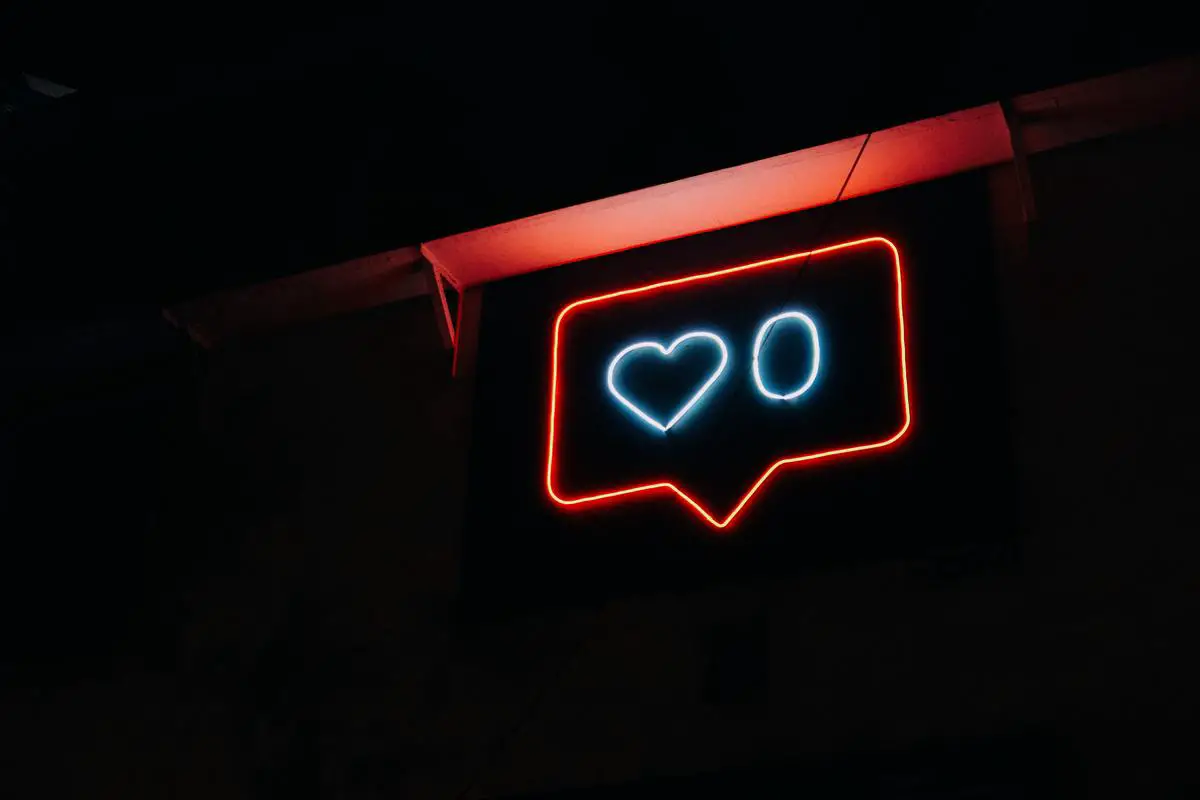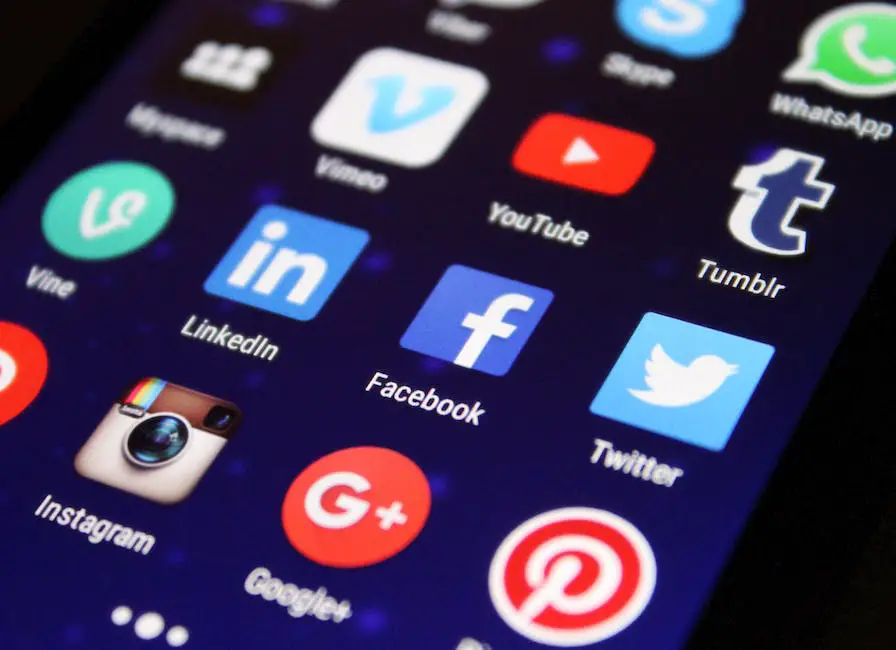What are the effects of social media on mental health? This article explores this current issue to guide those who want to gain control over their lives in the digital age.
In the age of technology, it’s nearly impossible not to engage with social media. As life gets more digital, it becomes critical to shine a light on the implications of using social media.
A double-edged sword, social media brings about connectivity and information sharing on one side. On the other hand, it can result in harm to mental wellbeing when not used wisely.
This exploration will unearth the multi-faceted effects social media has on our mental health, aiming to provide a comprehensive understanding of its role in our lives today.
Table of Contents
Statistics and Observations on the Effects of Social Media on Mental Health
Prevalent use of social media
With the advent of digital technology, the use of social media has become pervasive across all age groups, cultures, and demographics. Platforms such as Facebook, Twitter, Instagram, Snapchat, TikTok, and LinkedIn have captivated millions of users globally.
As of 2021, Facebook has a user base of over 2.8 billion active users monthly, while YouTube attracts 2 billion users. Instagram’s active user base is approximately 1.074 billion people. These statistics highlight the widespread use of social media platforms.
Social user stats and demographics
Social media platforms have varying user stats and demographics. Platforms like Snapchat and TikTok have been adopted heavily by younger generations, while Facebook and Youtube are used more broadly across different age groups.
Accordingly, people spend an average of 37.5% more time on social media now compared to how it was a decade ago. More than 5 billion people use social media nowadays.
General behavior patterns
There are varying general behavior patterns associated with social media usage. Some users log on occasionally, while others are heavy users spending several hours daily on these platforms.
Typically, younger demographics exhibit higher levels of usage, with one study indicating that on average, users aged between 18-24 spend an average of 2.3 hours per day on social media. People use social media for various reasons, including establishing social connections, entertainment, news, business, or marketing.
Social media and mental health
A wealth of research exists pointing to the potential effects of social media on mental health. Excessive use of social media has been linked to various mental health issues, including anxiety, depression, decreased self-esteem, and loneliness. These platforms can create an environment where users compare their lives with others, which can lead to feelings of inadequacy, lower self-worth, and reduced self-esteem.
Cyberbullying and social media
Another key area related to mental health is the issue of cyberbullying, which is a significant problem on these digital platforms. Users, particularly young people, are often exposed to harmful comments, body shaming, and other forms of online harassment. This can lead to stress, anxiety, depression, and in some extreme cases, even suicidal thoughts among those affected.
The FOMO (Fear of Missing Out) effect
Social media can also foster the Fear Of Missing Out (FOMO), where users may feel they are being left out of exciting or interesting events occurring elsewhere. This tends to lead to feelings of inadequacy, dissatisfaction, and increased anxiety.
Positive aspects of social media on mental health
However, social media also has potential positive effects on mental health when used constructively and in moderation. It can enable users to connect with others, build communities, find support during times of crises, and broaden their knowledge. For some, it can be a channel to break the stigma associated with mental health and find solace in shared experiences.
An approach to positive social media use for optimal mental healthh
It is crucial to practice certain methods to moderate the influence of social media on our mental wellbeing. These include periodically taking breaks, imposing curbs on usage duration, filtering content to ensure an affirmative feed, avoiding the pitfall of personal comparisons, and turning to professional help when required.
As we move more and more into a digital society, being aware of these effects and adopting suitable measures to counter them is vital for maintaining mental health.
I will give more details on these effects in the next sections highlighting the positive and negative effects of social media to mental health.

Positive Impacts of Social Media
1. Social media provides opportunity for connections and networking
Social media has an undeniable potential to enhance connections and networking among its users. Platforms such as LinkedIn have made it possible for professionals from around the world to interact and establish network, thus expanding their work possibilities and facilitating a wide-spread exchange of novel thoughts.
Similarly, for individuals with common interests, social media forums offer a space to exchange, deliberate and share their ideas and experiences, thereby opening up the world in an unprecedented manner.
2. It serves as a venue for knowledge sharing and learning
Social media also serves as a platform for knowledge sharing. Many people employ sites like Reddit or Quora to gain insights from the experiences of others. From mundane DIY projects to technical questions, users can quickly gather a plethora of viewpoints and solutions. Social media also offers a range of learning options, with video tutorials, live lectures, and collaborative projects, all of which can aid in skill and knowledge development.
3. Social media promotes activism and awareness
Social media utilization in activism and spreading awareness holds immense potential. For causes, from climate change to racial equality to mental health, the reach and effect of social media are unparalleled. An individual or group can spread the word about their causes, rally support, develop networks of like-minded people and work together for positive changes.
4. It enables emotional support groups to reach out
Through social media, individuals can also find emotional and practical support. Many mental health groups on Facebook, for instance, offer safe spaces where people can share their experiences and support each other. They can help in lessening the sense of isolation that often accompanies mental health issues and provide an easily accessible tool for seeking help.
5. Social media promotes positive psychosocial wellbeing
Research also suggests that social media can lead to positive psychosocial outcomes, such as improved subjective wellbeing, increased social trust, and decreased loneliness, especially among those who feel marginalized or unheard in traditional social environments. This includes individuals living with mental illnesses, such as depression or anxiety, who may find solace in the digital communities that social media provides.
6. It serves as an avenue for reflection and self-expression
Social media serves as an avenue for people to express their identities and share their personal narratives, providing a sense of unity and validation. There are numerous niche communities on platforms like Instagram, Twitter, and Facebook, where people can share their experiences with others who may have had similar experiences. This can lead to increased self-esteem and provide a positive outlet for self-expression.
7. Social media serves as powerful peer-support network
Groups on social media platforms can serve as powerful peer-support networks. They can provide individuals with a community of people undergoing similar challenges, offering an opportunity for mutual assistance and encouragement. Peer support can be particularly meaningful as it typically emanates from shared experiences, leads to unique understanding, and often fosters empathy, validation, and mutual empowerment.
Understanding the ways social media can positively affect mental health is critical. It’s also key, however, to interact with these platforms intentionally and remain aware of the effects they have on our general wellbeing.

Negative Impacts of Social Media
1. Social comparison
One considerable downside of social media use lies in the impact it has on an individual’s perception of self. Social comparison theory (Crusius, 2022), a concept suggesting people evaluate their personal and social worth through comparisons with others, is often exacerbated by social media. On these platforms, many users present idealized, joyful snippets of their lives, which can result in others feeling inferior or discontent with their own lives comparatively.
A study by Lancaster University discovered that exposure to these perfect portrayals can diminish self-esteem and promote dissatisfaction with one’s body. This often triggers intense depressive emotions.
2. Online harassment
Social media has unfortunately become a platform for online harassment. Trolling, cyberbullying, and online shaming have been significantly linked to increased depression, anxiety, and other psychological disorders.
Zhu et al. (2021) noted in their review of literature on cyberbullying noted that the rates of cyberbullying preparation ranged from 6.0 to 46.3%, while the rates of cyberbullying victimization ranged from 13.99 to 57.5%. Verbal violence was the most common type of cyberbullying.
3. Sleep deprivation
Excessive use of social media can also lead to sleep deprivation or insomnia. The blue light emitted by screens disturbs the release of melatonin, the hormone that regulates a person’s sleep-wake cycle.
Additionally, a study published in BMJ Open (Scott et al., 2019) revealed that heavy use of social media by teenagers disrupts their sleep pattern.
4. Addiction
There are growing concerns about social media addiction, which can be defined as being overly concerned about social media, driven by an uncontrollable urge to log on to or use social media, and devoting so much time and effort to social media that it impairs other important life areas. Like substance abuse, excessive social media use can lead to significant impairment or distress in several aspects of a person’s life, including academic performance, relationships, and physical health.
A study published in the journal Children found that social media addiction shares similar physiological traits with substance dependency (Ciacchini, et al., 2023), including mood modification, tolerance, withdrawal symptoms, and relapse.
5. Impact on mental health
Cumulatively, all these negative aspects of social media interaction can have a severe impact on mental health. Prolonged exposure to these platforms can lead to increased rates of anxiety, depression, loneliness, and suicidal ideation.
A 2018 study published in The Lancet found that increased social media use was associated with higher levels of depressive symptoms in adolescents, particularly girls. Specifically, compared to 1-3 hours of daily social media use, 3-5 hours of daily use was associated with a 26% increase in depressive symptom scores for girls and a 21% increase for boys. Daily use of 5 or more hours was associated with a 50% increase in depressive symptom scores for girls and a 35% increase for boys.
6. The illusion of perfection
One of the most detrimental effects of social media is the distortion of reality it tends to portray. Frequently, users only display the best aspects of their lives, leading to a skewed representation that can stir feelings of insufficiency and perpetuate unrealistic standards in others. Such distorted perceptions of reality could catalyze feelings of anxiety and depression (Buga & Kaya, 2022).

Photo by prateekkatyal on Unsplash
Role of Social Media in Mental Health Disorders
Amplification of anxiety and depression
This illusion of perfection takes a toll on mental well-being as intense engagement with social media platforms has been associated with heightened anxiety and depression. The relentless urge to keep tabs on updates and respond to notifications tends to escalate stress levels and evoke anxiety.
Concurrently, the inherent comparative nature of social media, which often leads users to unfavorably juxtapose their lives to others, can exacerbate feelings of inadequacy and incite depressive tendencies.
Research continues to highlight how excessive social media usage detrimentally impacts mental wellness in adolescents and adults alike, plunging them into a cyclical psychological downward spiral of anxiety and depression. The vast online environment can prove extremely overwhelming and the compulsion to remain in-sync with it can keep distress levels perpetually elevated, consequently fostering mental health disorders.
The connection between social media and body-image dissatisfaction
Social media platforms as mentioned previously play a significant role in body-image dissatisfaction among users. These platforms are often places where idealized versions of beauty, fitness, lifestyle, and success are showcased, which can lead users to feel insecure about their own bodies and life accomplishments. This exposure to carefully curated, idealized imagery can create unrealistic expectations and distort self-perception.
The constant exposure to such ‘ideal’ bodies or lifestyles can trigger unhealthy eating behaviors and body dissatisfaction. This dissatisfaction can, in turn, lead to more serious mental health conditions like eating disorders.
Social media and cyberchondria
Cyberchondria is a relatively new term, referring to individuals who compulsively research their real or imagined physical symptoms online, leading to increased anxiety about their health. The wealth of health-related information readily available on social media platforms can lead to excessive self-diagnosis and health anxiety.
Social media health trends, anecdotes, and misinformation can exacerbate these fears and anxieties, often causing more harm than good. The constant availability and insatiable nature of these online platforms can fuel cyberchondria, amplifying the impacts of this disorder on mental health.
The role of excessive social media usage
Excessive use of social media can exacerbate pre-existing mental health problems and potentially lead to the onset of new ones. The endless absorption in virtual spaces can lead to sleep deprivation, decreased productivity, and lower life satisfaction. The addictive elements of likes, shares, and comments can lead to the development of unhealthy behavioral patterns similar to those seen with substance abuse disorders.
Moreover, a significant part of social media usage is passive, such as scrolling through feeds, which uses up mental energy and exacerbates feelings of time wasted, leading to guilt, regret, and further erosion of mental health.
Each social media platform is designed to keep users engaged for as long as possible, which can lead to excessive usage. This excessive usage is linked to deficits in mental health, such as depression, anxiety, loneliness, and poor self-esteem.
The interplay between social media use and mental health conditions is a multifaceted and intricate issue. The sense of being connected that social media platforms provide can be beneficial, but it’s crucial to engage with these platforms in a mindful and moderate manner to avoid potential negative impacts on mental health. Contemporary research is consistently exploring and discussing the harmful effects of social media on mental health.

Mitigation Strategies for Healthy Usage
Implement usage boundaries
A practical approach to mitigate the potential detrimental emotional and psychological impacts of social media participation is to establish usage boundaries. This can be achieved by allotting specific periods for social media use, such as a few minutes each in the morning or evening.
Implementing these boundaries helps curb the common tendency for constant scrolling and notification checking, which can foster a feeling of mastery over social media habits.
In response to these concerns, several social media platforms now offer features that assist users in managing their time on the platforms more efficiently, including options to view time spent on the platform and setting reminders to take breaks after certain intervals.
Make use of ‘Do Not Disturb’ features
In line with setting usage limits, utilizing ‘Do Not Disturb’ features enhances control over social media engagement. Numerous digital platforms offer comprehensive controls that can customize when and how often users receive notifications.
By scheduling ‘Quiet’ or ‘Do Not Disturb’ periods, one can create specific times during the day or night where there are no disruptions from social media notifications.
Furthermore, this feature is beneficial for maintaining a healthy work-life balance and improving overall mental well-being.
Enforce digital detoxes
A digital detox refers to a period where a person refrains completely from using digital devices such as mobile phones or computers. It’s especially beneficial for heavy users of social media as it helps to regulate the time spent on these platforms and reduces potential dependence.
A digital detox can mitigate feelings of anxiety and depression, improving overall mental health, enhancing real-life social interactions, and increasing productivity. Periods of digital detox can vary and are usually determined by the individual’s level of social media dependence.
Practice mindful usage
Mindful usage promotes an individual’s awareness of their screen time along with their emotions and behaviors during media engagement. It involves being present in the moment and encourages intentional decisions about the type of content to consume. This strategy discourages real-time comparisons that can cause feelings of inadequacy and inferiority, leading to low self-esteem and other mental health issues.
Create positive online communities
Promoting positivity is another effective strategy for healthy social media usage. Social media platforms should not just be channels for sharing personal achievements or happy moments but also fostering supportive communities.
Users can seek out and participate in positive online communities that resonate with their interests and values. Doing so can provide a sense of belonging and positive reinforcement. It can also shield against cyber-attacks and negative effects like online trolling and cyberbullying, which can significantly affect mental health.
Meet health and well-being goals through technology
A healthier approach to integrating technology in daily routines can be achieved through using social media to meet health and wellbeing goals. Utilizing fitness apps for workout routines, health apps for nutrition tracking, or mindfulness apps for meditation can create a more positive relationship with technology.
Seek professional help
Most importantly, if the effects of social media are becoming too overwhelming, don’t hesitate to seek professional help. Therapists and counselors can provide practical techniques for managing social media use.
Some online platforms offer mental health resources or partnered with mental health organizations to provide vital resources and tools to users struggling with the negative mental health impact of social media.

Take Home Message
It is imperative we acknowledge both the good and the bad when it comes to social media. We ought to appreciate the platforms’ ability to connect and inform us, but equally remember their potential for harm.
As the digital realm becomes more and more ingrained in our day-to-day lives, we must figure out how to navigate it in a healthy, positive manner. By understanding the potential pitfalls and implementing practical strategies to manage our consumption, we can ensure we control our interaction with social media, rather than it controlling us.
References
Buga, A., & Kaya, İ. (2022). The Role of Cognitive Distortions Related Academic Achievement in Predicting the Depression, Stress and Anxiety Levels of Adolescents. International Journal of Contemporary Educational Research, 9(1), 103-114.
Ciacchini, R., Orrù, G., Cucurnia, E., Sabbatini, S., Scafuto, F., Lazzarelli, A., … & Conversano, C. (2023). Social Media in Adolescents: a retrospective correlational study on addiction. Children, 10(2), 278.
Crusius, J., Corcoran, K., & Mussweiler, T. (2022). Social comparison: Theory, research, and applications. Theories in social psychology, 165.
Scott, H., Biello, S. M., & Woods, H. C. (2019). Social media use and adolescent sleep patterns: cross-sectional findings from the UK millennium cohort study. BMJ open, 9(9), e031161.
Zhu, C., Huang, S., Evans, R., & Zhang, W. (2021). Cyberbullying among adolescents and children: a comprehensive review of the global situation, risk factors, and preventive measures. Frontiers in public health, 9, 634909.
[cite]



